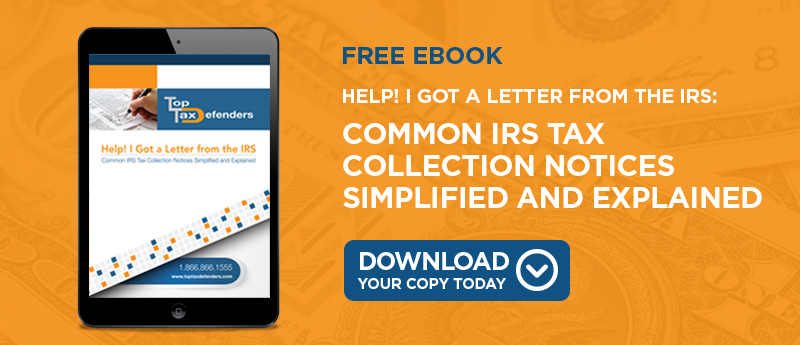Other Reasons for an IRS Letter
Along with its intent to audit you, the IRS will also send you a letter for other reasons as well. Some of the more common reasons that it notifies you by mail include:- Owing money for past due balances
- Unclaimed refunds to which you are entitled
- Notice of default on a payment agreement
- Intent to levy assets like your wages and bank accounts
If, for example, the letter indicates that you owe a past due balance, you can either agree with the amount, pay it in full, or set up a payment arrangement. If you do not agree with the amount stated, however, you can contest it by contacting the IRS and submitting the proper paperwork. You may also need to submit proof of your finances like:
- 1099s or W-2s
- Prior tax returns
- Bank statements
- Statements of dividends or other earnings
DO YOU NEED IRS TAX HELP? SCHEDULE A FREE CONSULTATION WITH OUR TAX EXPERTS »
When you are notified about any balance that you owe the IRS, it is important that you resolve it as quickly as possible rather than ignoring it. Ignoring the letter and the IRS' intent to collect on the debt will not make the issue go away. If anything, your disregard for the matter invites the IRS to:
- Garnish your wages or salary
- Substitute the disputed return, which could result in you owing more money
- Send a tax officer to visit you at home
- Seize your assets like investments or savings accounts
- File criminal charges against you
The IRS is more than willing to work and negotiate with taxpayers who have unsettled accounts or owe past due balances. The first step to starting this negotiation process requires that you respond to all letters sent by the IRS.
Rather than panic when you get an IRS letter in the mail, you should take the proper steps to communicate about your tax issue. Ignoring IRS letters could result in serious financial and legal consequences.



